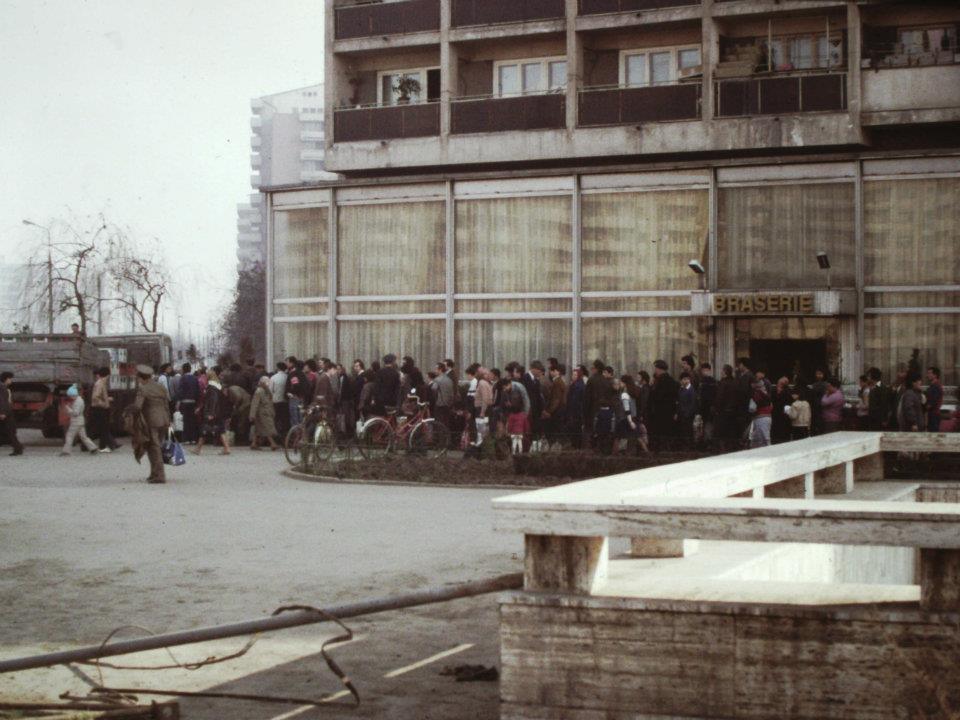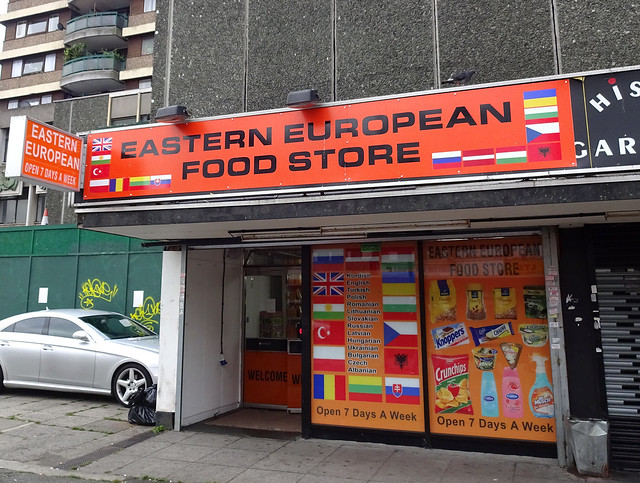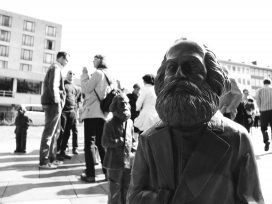When the Cold War ended, the direction of central and eastern Europe’s transformation seemed to be clear: building capitalist democracies in the framework of the region’s ‘return to Europe’. The high point of return was achieved in the first decade of the 2000s, when eleven former socialist countries managed to adopt key institutions of market economy and democracy and joined the European Union. Yet, soon after the enlargement, old fault lines have re-opened and new ones emerged. Economic nationalism and political illiberalism have taken hold in some of the countries that previously had been most eager to return to the West and embrace its values. Hungary and Poland are the prime examples. Other countries which, on the surface, have retained the image of poster-children of ‘Europeanness’, have succeeded in this endeavor against the background of unsavory procedures and questionable democratic credentials. Corruption and oligarchic state capture in the Czech Republic and Latvia are cases in point. Finally, some countries of the western Balkans have never quite entirely broken with their authoritarian past, which facilitated their turn to hybrid regimes without a detour to capitalist democracy.
These symptoms are not unique to the East but crisscross the former Cold War borders. Still, we see the remaining differences between the two halves of the continent significant enough to ask: does the fragility of the new order also have to do with inflated expectations and misperceptions concerning the roads open to the region and the nature of the European project? We think it does. We will highlight three such misperceptions – two related to the capitalist and one to the democratic aspects of transformation – which have profoundly shaped the choices of the 1990s and concealed existing conflicts and power relations. As such, they have also contributed to the recent, more contentious period in East-West relations.

Waiting in line for cooking oil in Bucharest — Communist Romania in 1986.
Photo by Scott Edelman via Wikimedia Commons
Western-style capitalism on the periphery
The first misconception was that the return to Europe would foster western-style capitalism. This view was influential among international advisors, local reform elites, and, at least initially, also shared by significant groups of electorates in the region. Accordingly, in the early 1990s, Harvard economist and economic advisor Jeffrey Sachs asserted that, to ‘clean up the shambles left by communist mismanagement, Eastern Europe must … reject any lingering ideas about a “third way”… and go straight for a western-style market economy.’ If, in turn, western Europe would do its part in opening its markets and offering financial assistance, there was no reason to doubt that the region would thrive economically and stabilize politically. Indeed, even those analysts who were more sceptical about the outcome of transformation saw the carrots and sticks of western assistance as enabling factors. Why did the promise of western-style, that is, advanced and wealthy, capitalism then prove to be an illusion?
The possibility that due to the combination of domestic reform efforts with multifaceted external assistance Europe’s regained periphery would eventually join its developed core (or make at least significant advances to that end), could not be excluded. After all, in the past, accession to the EU had indeed led to rapid convergence (for example in the southern periphery or Ireland). What advocates of encompassing reforms under the tutelage of the EU have not appreciated enough is the concrete nature of the European capitalism into which the newcomers’ economies were to be integrated. They overlooked that, when the socialist system collapsed, western capitalism was in the midst of fundamental transformation itself. Nationally embedded and regulated market economies were giving way to leaner and meaner transnational capitalism. European integration has played a major role in shaping this process through enforcing radical liberalization, deregulation, and privatization.
All this has had profound consequences for the prospects of transforming central and eastern European economies as well. The demanded restructuring was much deeper and more far-reaching than would have been the case had the socialist system collapsed a decade or two earlier. The region’s firms were exposed to the harsh competition of western companies early on, while its governments’ capacities or willingness to mitigate the resulting dislocation were insufficient relative to the needs. As a consequence, foreign rather than domestic companies were quickly occupying the commanding heights in the new capitalist system. Foreign penetration ran also deeper than in other regions of the globe. While the region’s manufacturing production has been revitalized through combining skilled but cheap eastern labor with western technology and market access, transnational corporations also took over the banking, energy, and retail sectors, and even the media. All in all, what emerged in the East was dependent capitalism that differed significantly from its western counterpart. To capture its specificity, scholars stressed the unusual degree of one-sided reliance on external resources and dependence on foreign control.

Eastern European Food Store, Croydon, London
Photo by Kake Pugh from Flickr
The mixed blessing of the free movement of capital and labor
But is strong dependence on the single market with the free movement of capital and labour at its core necessarily an obstacle, rather than an asset, to the latecomers’ efforts to leave the periphery? While the impact of capital and labour mobility is complex, controversial, and context-dependent, in our case the dominant perception proved to be illusory in that it exaggerated the blessings and downplayed the inherent risks of rapid integration between advanced and less-advanced economies primarily through free markets.
Accordingly, backers of the EU’s neoliberal restructuring argued that the mobility of capital and labour brings benefits for the economies and workers of the ‘old’ and ‘new’ member states alike. They asserted that outsourcing production would help labor by creating more employment and faster growth in the East, while it frees resources for new activities and improves the standards of work and living in the West. Compared to this optimistic vision, the actual record of foreign-led capitalism in the East has been mixed. On the one hand, there were impressive accomplishments: external management, control, and finance have served as substitutes for initially scarce local factors of modernization. On the other hand, over time these short-cuts might have marginalized existing or stunted the emergence of new domestic entrepreneurship, capital accumulation, and governance, and thus perpetuated one-sided dependence. As aptly characterized by Vera Šćepanović, the resulting tension entails that even if central and eastern Europe has been quite successful in catching up, this has come at the expense of true convergence, that is, the achievement of similar social and entrepreneurial standards as seen in advanced capitalist countries.
It is not surprising, then, that, especially after 2008, pessimistic visions of the consequences of neoliberal EU capitalism have come back with a vengeance. The most ardent critics claim that both the West and the East tend to lose from capital mobility, because the cut-throat competition for foreign direct investment (FDI) brings about a ‘race to the bottom’ of wages, work conditions, and labor relations, and/or a ‘race to the top’ in the generosity of incentives offered to investors. Alternatively, reviving the old concerns of dependency theory, nationalist politicians and policy makers in the East fear that while outsourcing of production might be beneficial for the rich capital exporters, foreign dominance keeps host countries trapped in an economy characterized by low technology, low skilled, and cheap labor. Finally, similar conflicting views have been expressed concerning the impact of free movement of labour, ranging from perceptions of mutual benefits to Western accusations of social dumping and welfare parasitism of migrant labour (the ‘Polish plumber’ discourse), and the eastern concerns about brain drain and the consequences of population loss.
It is not that some of these perceptions are correct and others are necessarily false. Our point rather is that each of the identified problems did have a base in fact, and therefore could and did serve as real-world reference points for rival political projects. The tension among the competing views came into the open with remarkable intensity after the global financial crisis. The turbulence after 2008 exposed the drawbacks of dependency and launched a new era of hierarchical economic surveillance in the EU. It is against this background that some governments in the East and beyond have started to revolt against economic and political liberalism and embrace nationalism. In turn, their enduring contention has raised serious doubts about the EU’s reputation as a defender of last resort of the continent’s political freedom.
The European rescue of the illiberal state
The third misperception has been that the EU is a guarantor of liberal democracy in the region, and as such willing and able to reign in political backsliding. Some observers see the EU as a ‘normative power’. In this account, the EU is different from other great powers in that it ‘has gone further towards making its external relations informed by, and conditional on a catalogue of norms’ such as principles of human rights, democracy, rule of law, and social solidarity. Scholars of Europeanization have also argued along these lines. They see the EU’s mixture of carrots and sticks it applied during the accession process as stabilizing the new capitalist democracies and in some cases tipping the balance in favor of pro-democratic forces. These scholars did not find it entirely surprising that some east European countries started to backslide on their political and economic reforms after accession, as the stick of compliance cannot any longer be sweetened by the carrot of membership. In this view, tendencies towards political illiberalism and populism are thus homegrown, located in Eastern Europe’s distant or close past and its domestic politics, while the EU acts as a catalyst of change through deploying its normative power.
Today, it is easier to see that there are some flaws in this benign view of the EU. While the EU did talk the talk of normative power, it has walked a somewhat different walk. Indeed, there are reasons to believe that, far from being the antithesis to illiberal politics, the EU proved to be an integral part of its reassertion. We do not claim that this was a deliberate choice. Yet, with the benefit of hindsight, it seems that, had keeping illiberal tendencies alive in eastern Europe been one of the EU’s purposes, it could hardly have done a better job.
The European rescue of the illiberal state has played out in a variety of ways, starting with the accession process. Early on, critics have questioned the democratic credentials of the EU’s conditionality. Accession conditionality was tight and its scope far larger than in earlier episodes of enlargement. Thus, the newcomers’ governments were left with very limited choices as to policy substance. This ‘has preempted much of the public debate over the nature of policy in the region. As a result, it has had not only the benign effect of foreclosing the basic debates over desirable regime types (democracy and its alternatives), but it has eradicated both detailed and ideological debates over many areas of public policy’.
The marriage between rapprochement to the EU and political illiberalism is even more visible in the western Balkans, where this process has been managed in the settings of competitive authoritarian rather than weakly established democratic regimes. While the opening of a ‘European perspective’ for the western Balkans had initially been accompanied by political liberalization, this trend has reversed over the past decade. This can be accounted for with the fact that the EU and other Western actors have prioritized stability over democracy by supporting governments that promised to secure Western geopolitical, economic, security, and energy interests. More often than not, the EU and other Western actors have turned a blind eye on violations of democratic norms and rule of law, preferring to interact with strong leaders that could provide stability – hence the term ‘stabilitocracy’ for the political regimes that have emerged in the western Balkans.
The European rescue of the illiberal state is inextricably linked to the European Peoples Party (EPP), the political force that has dominated the EU for the last two decades. Since the 1990s, facing the challenges of the EU’s possible eastern enlargement and the ascendance of centre-left forces, the EPP had been on a ‘political mergers and acquisitions spree’, which made it the biggest party in the European parliament, occupying most of the strategic positions in the EU.
The price EPP was willing to pay for ruling the EU in an enlarged Europe was to be much less selective in respect to the ideology or democratic credentials of their members. Italy’s Forza Italia, Croatia’s Christian Democratic Union (HDZ), and Hungary’s Fidesz were all admitted into the broad tent of the EPP. While being members of the EPP, the leaders of these three – and many other – parties were also busy with either dismantling democracy, engaging in large-scale corruption, or both. Hungary’s Viktor Orbán has arguably gone farthest in embracing an openly far-right and anti-European agenda while staying under the protective umbrella of the EPP. EPP leaders have justified this by arguing that Orbán’s excesses are easier controlled inside rather than outside of the party. Whether this is cheap, cynical talk, or genuine belief, EPP’s strategy has offered Orbán a highly visible stage to spread his illiberal democracy.
There are other ways how the EU has come to support political backsliding. Tight economic surveillance and moralizing renationalization during the global financial crisis and the Eurozone crisis has opened an opportunity structure for illiberal governments to legitimate a nationalist and sovereigntist political agenda. In contrast to its harsh economic surveillance, the European Commission lacks effective instruments and the fantasy of how to use the few instruments it has in a more effective way when it comes to political surveillance. Emigration, enabled by the EU’s free movement, can act as stabilizer of illiberal regimes. While the younger, more educated, and critical exit, the less skilled, older, and less entrepreneurial, who are more easily attracted by an illiberal political agenda, stay behind to express their voice. Finally, political illiberalism is being subsidized by the EU’s Structural Funds. None of this is easy to reconcile with the view of the EU as a normative power.
Conclusion: from political construction to political consequences
What have been the political consequences of the three popular misperceptions that we identified in this brief essay? The power of the idea that building Western-style capitalism had been a realistic option is best illustrated by its impact on public disaffection with the transformation. Witnessing that the region’s dependent poor capitalism is a far cry from the promised developed rich variant, citizens often resolve the conflict by questioning altogether that the new system is capitalism worth the name. Hence the popularity of blames on the ‘simulated’, ‘mimicry’ or ‘virtual’ nature of post-socialist capitalism; the enduring faith in the superiority of the missed ‘real thing’ over the existing ‘Ersatz’; and the boiling anger about the fake or stolen transformation and its thieves – all of which is in line with a long historical tradition in eastern Europe.
A related example of one misperception breeding another is found in the early loud politicization of subsidizing the nascent national bourgeoisie as promotion of rent-seeking and corruption, in contrast to the almost unanimous approval of generous subsidies to foreign investors – at least until the advent of economic nationalism. Why waste scarce public resources on protecting non-competitive local firms when the free movement of capital allows a superior short-cut: the entry of foreign firms willing to share the benefits of their activity with their hosts? Yet, even if a related question – are foreign investors competitive because they are subsidized or vice versa – is put aside, the opponents of economic nationalism might be criticized for their own misperception: the illusory model of a cohesive and stable society in which, however, all the important propertied positions are held by foreigners.
Finally, the EU’s self-stylization as a normative power that talks the talk and walks the walk has had an impact on political actors in eastern Europe. The ‘return to Europe’ has been hugely important for the political transformation, but it has also been a shortcut where neither governments nor the opposition needed to invent their own political agenda. Also today, illiberal political forces are mostly railing against the interference of Europe, while one of the most striking features of the democratic opposition is that ‘once again the rules and values of the European Union serve as a focal point for cooperation among pro-democracy groups’.
Rejecting these values unites illiberal forces; invoking them, the democratic opposition. Both sides of the camp are however united in their belief that the EU will come to the rescue of those values. While the opposition hopes for EU support, illiberal leaders fear it, hence their adamant defence of the national sovereignty. A more realistic understanding of the EU would start by acknowledging that walking the walk is not high on the EU’s priority list. This would force the opposition to invent its own agenda. At the same time, the EU’s self-stylization as normative power also contributes to the re-enforcement of the East-West cleavage. The West often indignantly points to the illiberal East that supposedly bites the hands that fed it; thereby conveniently overlooking its own responsibility in stabilizing autocratically minded leaders.











